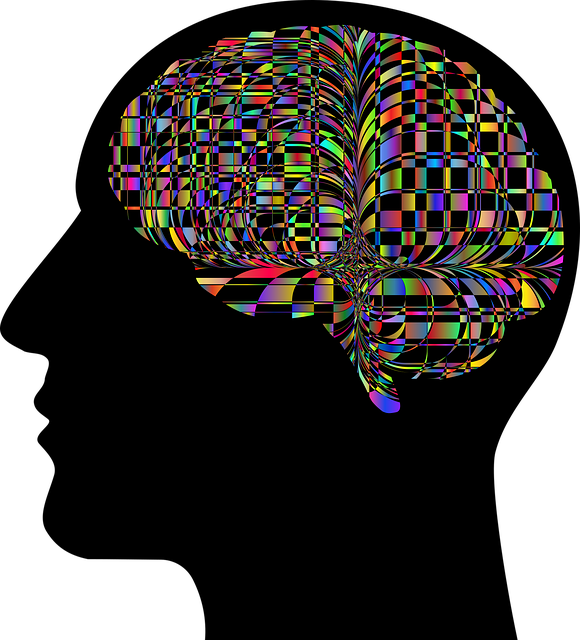Evaluating the success of therapy for young children codependency programs requires assessing more than just participation. It involves tracking improvements in emotional regulation, social interactions, and academic performance as key indicators of success. These programs should focus on anxiety relief, mental health awareness, and developing self-care routines to empower children with healthy coping mechanisms. By identifying codependency's roots, integrating trauma-informed practices, and using metrics like engagement rates and therapeutic outcomes, these programs can effectively address underlying issues, prevent severe mental health concerns, and improve access to care for vulnerable young individuals.
Mental wellness programs play a pivotal role in fostering healthy development, especially for young children. This article explores effective evaluation methods to assess the impact and success of such initiatives. We delve into key aspects such as assessing the impact on young children, identifying codependency issues early, and choosing appropriate evaluation metrics. Additionally, we discuss integrating therapy techniques to enhance program effectiveness, focusing on innovative approaches tailored for therapy and codependency among children.
- Assessing the Impact of Mental Wellness Programs for Young Children
- Identifying Codependency in Childhood and Its Programmatic Implications
- Evaluation Metrics: Measuring Success and Effectiveness
- Integrating Therapy Techniques into Comprehensive Program Evaluation
Assessing the Impact of Mental Wellness Programs for Young Children

Evaluating the impact of mental wellness programs tailored for young children is a multifaceted process that goes beyond mere numbers. While measuring participation rates and satisfaction levels are essential, they only scratch the surface of understanding a program’s effectiveness. The true metric lies in observing tangible improvements in the children’s lives, such as enhanced emotional regulation skills, improved social interactions, and better academic performance.
Therapy for young children, especially those addressing codependency issues, should foster Anxiety Relief and promote Mental Health Awareness. A well-designed program aims to equip kids with healthy coping mechanisms, enabling them to navigate life’s challenges. By integrating Self-Care Routine Development for Better Mental Health into the curriculum, these initiatives empower children to take charge of their emotional well-being, setting them up for long-term success and resilience.
Identifying Codependency in Childhood and Its Programmatic Implications

Identifying codependency at its roots is crucial when designing mental wellness programs for young children. Childhood experiences significantly shape an individual’s emotional development, and patterns of codependency often emerge as a coping mechanism in response to early traumatic events or inconsistent caregiving. Through comprehensive therapy for young children with codependency, professionals can address these underlying issues before they escalate into more severe mental health concerns.
Programmatic implications of recognizing codependency in childhood include integrating trauma-informed practices and fostering secure attachment styles. Effective interventions aim to teach children healthy coping strategies, improve their sense of self, and promote positive relationships with caregivers and peers. Mental illness stigma reduction efforts should also be integrated, ensuring that young participants feel supported and understood as they navigate their emotional experiences. Additionally, mental health policy analysis and advocacy can benefit from these insights, driving the development of more effective and inclusive support systems for vulnerable children.
Evaluation Metrics: Measuring Success and Effectiveness

Evaluation Metrics play a crucial role in assessing the success and effectiveness of mental wellness programs, especially when tailored for young children struggling with codependency. Metrics such as participant engagement, therapeutic outcomes, and changes in behavioral patterns offer valuable insights into the program’s impact. For instance, tracking attendance rates and active participation in therapy sessions can indicate the level of interest and commitment from the young clients. Additionally, measuring improvements in their ability to manage stress and regulate emotions, often achieved through structured activities and mindfulness techniques, provides quantifiable evidence of progress.
Beyond individual benefits, evaluating program effectiveness contributes to broader mental health policy analysis and advocacy efforts. By studying the outcomes, healthcare providers can advocate for more comprehensive Cultural Competency Training, ensuring services are tailored to diverse populations. This data-driven approach also informs Mental Health Policy Development, guiding decisions on resource allocation and program expansion based on proven successful strategies, ultimately enhancing access to effective therapy for young children affected by codependency.
Integrating Therapy Techniques into Comprehensive Program Evaluation

Integrating diverse therapy techniques into comprehensive program evaluation is a powerful approach to understanding and enhancing mental wellness in various populations, particularly young children and those dealing with codependency. By combining evidence-based practices, such as cognitive-behavioral therapy (CBT) for mood management, with dynamic interventions like social skills training, evaluators can gain deeper insights into the effectiveness of their programs.
This multifaceted strategy allows for a holistic assessment, recognizing that mental wellness is influenced by multiple factors including emotional regulation, interpersonal relationships, and environmental support. For instance, a Mental Wellness Podcast Series Production might incorporate CBT techniques to help children identify and manage their emotions while simultaneously implementing Social Skills Training to foster positive interactions with peers. Such an integrated evaluation method ensures that the program’s impact is not just surface-level but delves into the underlying dynamics contributing to mental wellness.
Mental wellness programs play a pivotal role in fostering resilience and healthy development, especially for young children. By evaluating these programs through diverse methodologies, we can ensure their effectiveness in addressing issues like codependency. Integrating various assessment techniques, including metrics that capture both individual and collective progress, allows for comprehensive insights into the success of interventions such as therapy for young children. This multi-faceted approach enables us to adapt programs, making them more tailored and impactful, ultimately enhancing mental wellness outcomes for vulnerable populations.














